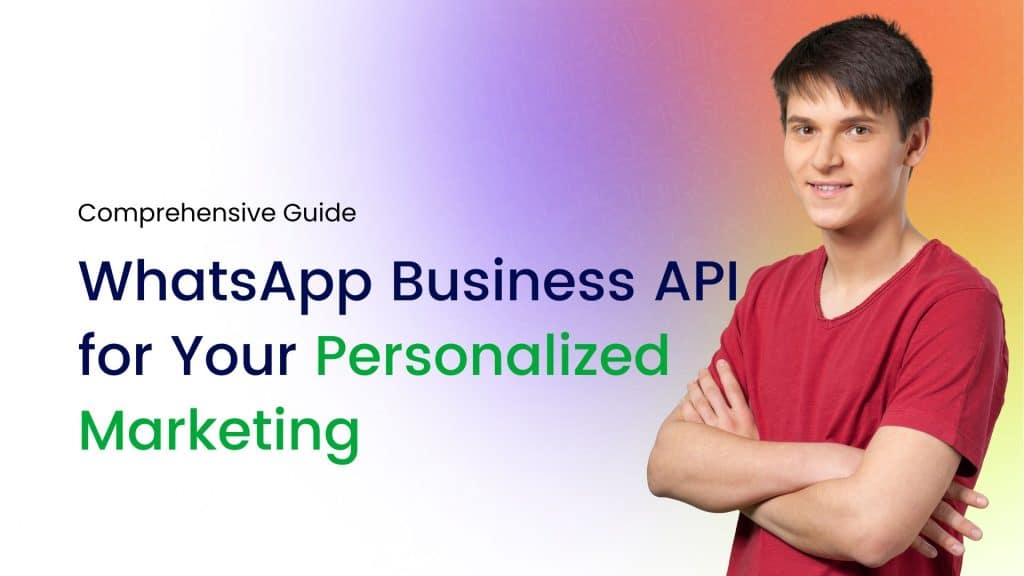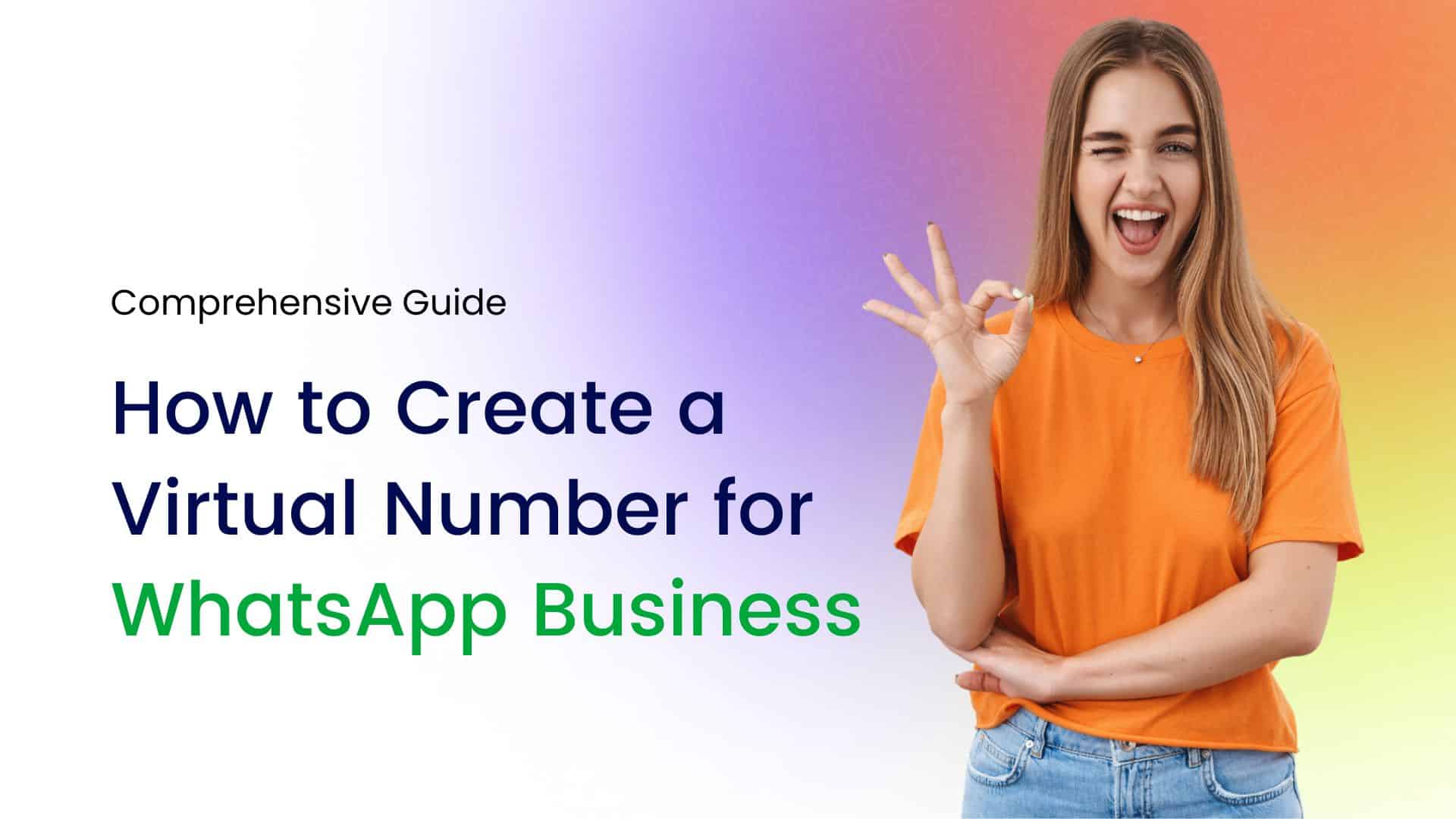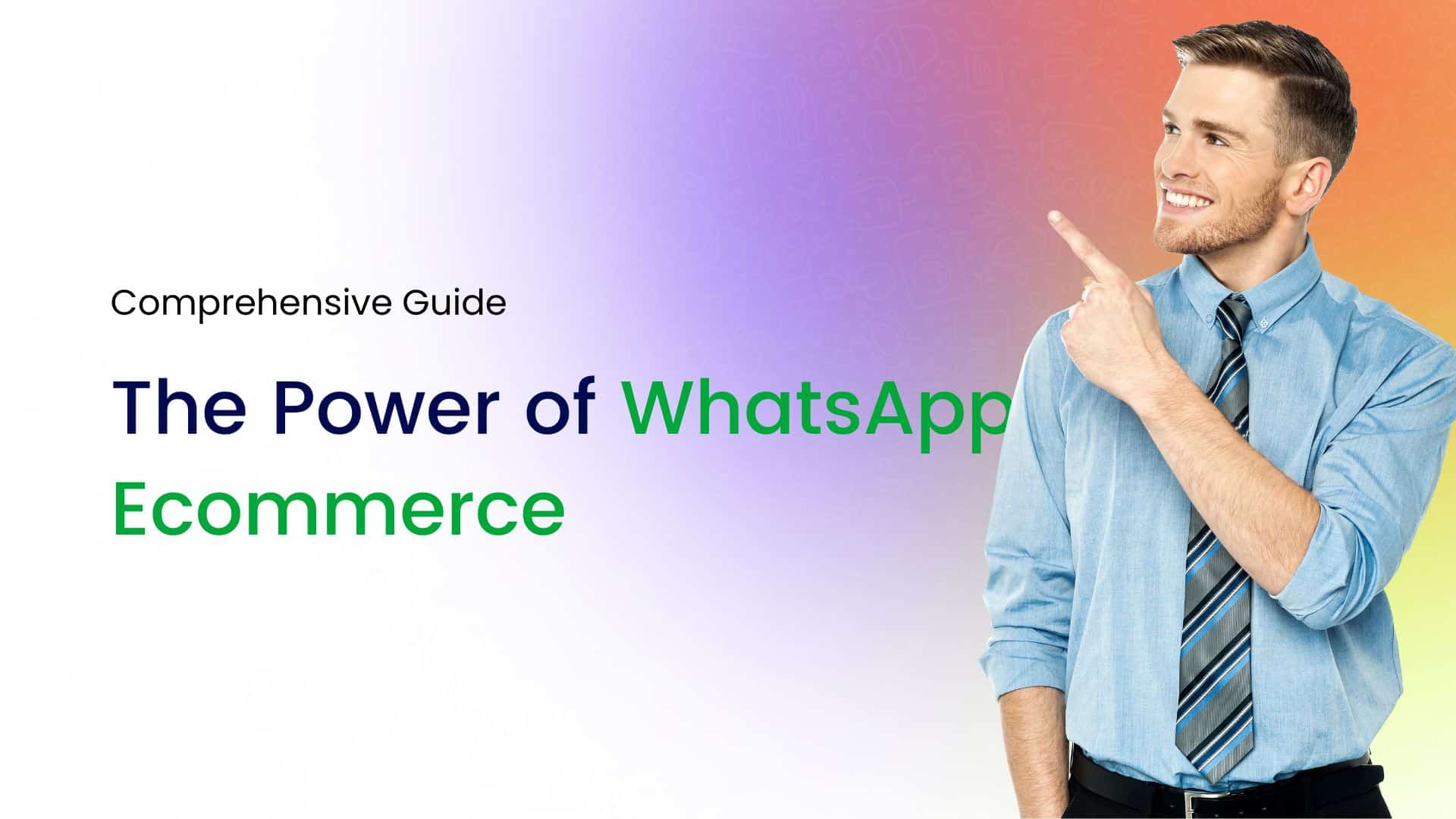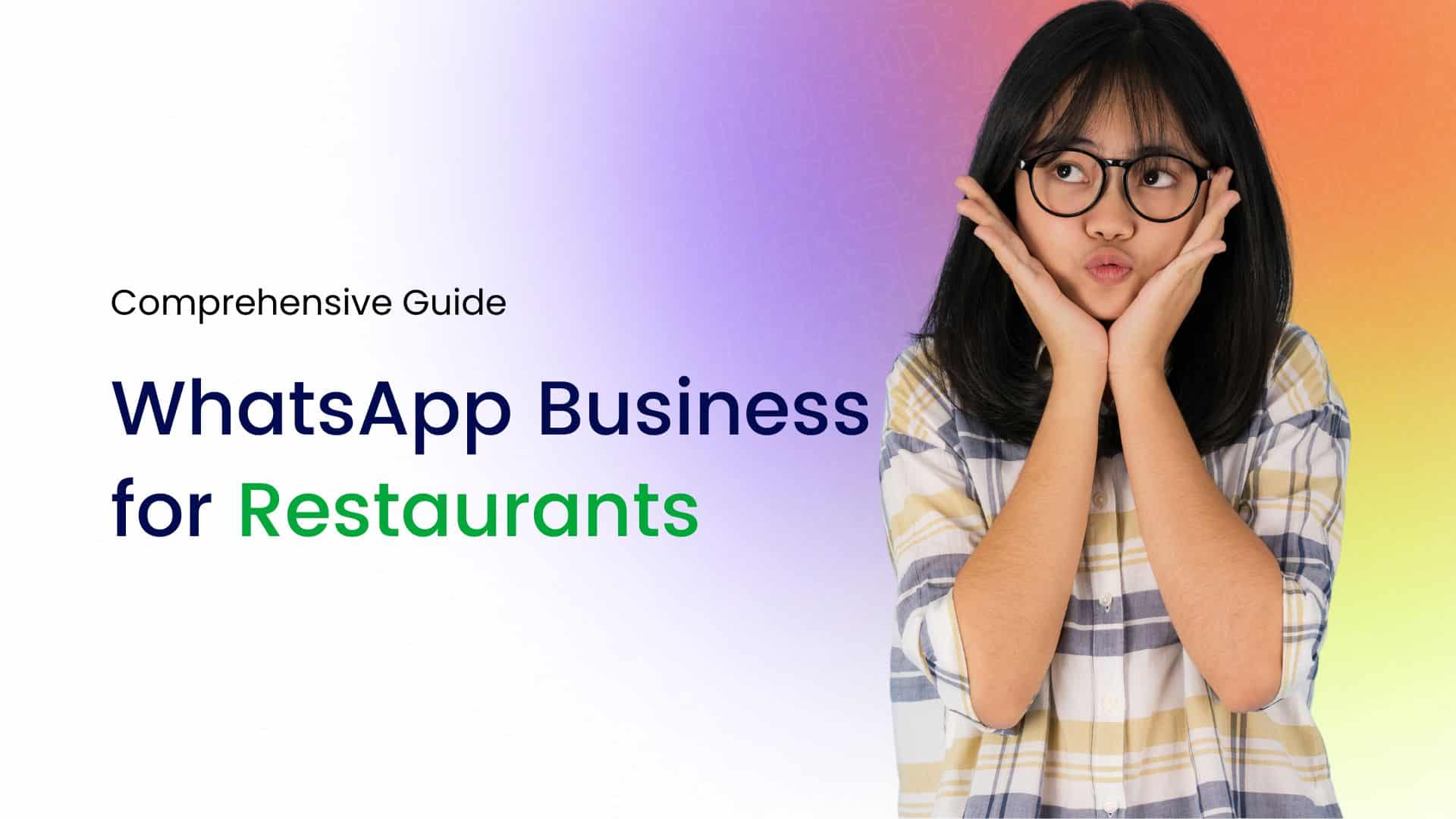In today’s digital age, businesses are constantly seeking innovative ways to connect with their customers on a more personal level. With the proliferation of messaging apps, platforms like WhatsApp have emerged as powerful tools for businesses to engage with their audience. The introduction of WhatsApp Business API has further revolutionized customer communication by enabling personalized marketing strategies.
Understanding WhatsApp Business API
WhatsApp Business API is a powerful tool designed specifically for medium to large businesses to streamline communication with their customers. Unlike the regular WhatsApp application, the API offers enhanced features tailored for businesses, including automated messaging, messaging templates, and customer support integration.
Benefits of Using WhatsApp Business API for Marketing
Direct Communication Channel
WhatsApp boasts over 2 billion users worldwide, making it one of the most popular messaging platforms globally. By leveraging the WhatsApp Business API, businesses gain direct access to a vast user base, allowing for seamless communication with customers in real-time.
Personalized Messaging
Personalization is key in today’s marketing landscape, and WhatsApp Business API facilitates tailored messaging based on customer preferences and behavior. Businesses can send personalized offers, recommendations, and updates, thereby enhancing customer engagement and loyalty.
Automation and Scalability
With the API’s automation capabilities, businesses can streamline their marketing processes by scheduling messages, setting up chatbots for frequently asked questions, and sending automated responses. This not only saves time and resources but also ensures consistent communication across multiple touchpoints.
Rich Media Support
WhatsApp supports various forms of media, including images, videos, and documents. Businesses can leverage rich media content to create engaging marketing campaigns that resonate with their audience on a deeper level, fostering brand awareness and recall.
Enhanced Customer Service
In addition to marketing, WhatsApp Business API facilitates efficient customer support. Businesses can address inquiries, resolve issues, and provide real-time assistance to customers, thereby enhancing satisfaction and fostering long-term relationships.
Implementing Personalized Marketing Strategies with WhatsApp Business API
Segment Your Audience
Divide your customer base into segments based on demographics, preferences, and purchase history. This allows for targeted messaging and ensures that each communication resonates with its intended audience.
Create Engaging Content
Craft compelling and relevant content that aligns with your brand identity and resonates with your target audience. Use multimedia elements such as images, videos, and GIFs to capture attention and convey your message effectively.
Utilize Messaging Templates
WhatsApp Business API offers pre-approved messaging templates for various use cases, including order updates, appointment reminders, and promotional offers. Utilize these templates to streamline your communication and ensure compliance with WhatsApp’s policies.
Leverage Automation
Take advantage of automation features such as chatbots and automated responses to handle routine inquiries and streamline customer interactions. This frees up time for your team to focus on more complex tasks while providing customers with timely assistance.
Monitor and Analyze Performance
Track key metrics such as message open rates, response times, and conversion rates to measure the effectiveness of your marketing campaigns. Use this data to refine your strategies and optimize future communications for better results.
Maximizing Affiliate Campaigns with WhatsApp Catalog Feature
In the realm of digital marketing, affiliates play a crucial role in promoting products and services to a wider audience. With the rise of messaging platforms like WhatsApp, businesses are exploring innovative ways to leverage these channels for marketing purposes. One such feature that holds immense potential for affiliate campaigns is the WhatsApp Catalog.
What is WhatsApp Catalog?
WhatsApp Catalog is a feature designed primarily for small businesses to showcase their products and services within the WhatsApp messaging platform. It allows businesses to create a mobile storefront where they can display product images, descriptions, prices, and other relevant details. Users can browse through these catalogs seamlessly within the chat interface, making it convenient for both businesses and customers.
Why Utilize WhatsApp Catalog for Affiliate Campaigns?
- Direct Communication: WhatsApp provides a direct channel of communication between affiliates and potential customers. By integrating catalogs into chats, affiliates can showcase products in a visually appealing manner, enhancing engagement and conversion rates.
- Visual Appeal: Unlike plain text or links, catalogs offer a visually engaging way to present products. High-quality images coupled with concise descriptions can attract the attention of users and encourage them to explore further.
- Convenience: With catalogs, affiliates can easily organize products into categories, making it convenient for users to find what they’re looking for. This streamlined browsing experience can lead to higher retention and increased sales.
- Personalization: Affiliates can personalize their interactions by recommending specific products based on users’ preferences or past purchases. This targeted approach can significantly improve the relevance of product recommendations, thereby boosting conversion rates.
- Tracking and Analytics: WhatsApp Catalogs offer insights into user behavior, allowing affiliates to track which products generate the most interest and which ones require further promotion. This data-driven approach enables affiliates to optimize their campaigns for better results.
Best Practices for Using WhatsApp Catalog in Affiliate Campaigns
- Optimize Product Descriptions: Craft compelling product descriptions that highlight key features and benefits. Use concise language and include relevant keywords to improve searchability within the catalog.
- Visual Consistency: Maintain visual consistency across the catalog by using high-quality images and consistent branding. Ensure that product images are clear, well-lit, and visually appealing to capture users’ attention effectively.
- Update Regularly: Keep the catalog updated with the latest products, prices, and promotions. Regularly refreshing the content ensures that users have access to the most relevant and up-to-date information.
- Engage with Users: Encourage interaction by inviting users to ask questions, provide feedback, or share their experiences with the products. Engaging with users fosters trust and credibility, ultimately leading to stronger customer relationships.
- Track Performance: Monitor the performance of your affiliate campaigns using analytics tools provided by WhatsApp or third-party platforms. Analyze metrics such as click-through rates, conversion rates, and user engagement to identify areas for improvement and optimization.
Future Trends in WhatsApp Affiliate Campaigns: Revolutionizing Marketing Strategies
In the realm of digital marketing, staying ahead of trends is crucial for businesses aiming to maintain a competitive edge. WhatsApp, the ubiquitous messaging platform, has evolved beyond personal communication into a powerful tool for businesses to engage with customers. With the rise of affiliate marketing, WhatsApp has become a fertile ground for innovative campaigns. Looking forward, several trends are set to reshape the landscape of WhatsApp affiliate campaigns, presenting new opportunities and challenges for marketers.
Personalized Conversational Marketing
One of the most significant trends shaping the future of WhatsApp affiliate campaigns is personalized conversational marketing. Consumers increasingly demand personalized experiences, and messaging platforms like WhatsApp offer a direct channel for brands to engage in one-on-one conversations with their audience. By leveraging data analytics and AI-driven insights, marketers can tailor their affiliate campaigns to suit individual preferences, leading to higher conversion rates and customer satisfaction.
Integration of Chatbots
Chatbots are poised to play a central role in the future of WhatsApp affiliate campaigns. These AI-powered assistants can automate interactions, answer queries, and even facilitate transactions seamlessly within the messaging interface. Integrating chatbots into affiliate campaigns allows businesses to scale their operations, provide round-the-clock support, and deliver personalized recommendations based on user behavior. As natural language processing technology advances, chatbots will become more adept at mimicking human conversation, further enhancing the user experience.
Visual Content and Multimedia Engagement
In an era dominated by visual content, incorporating multimedia elements into WhatsApp affiliate campaigns will be crucial for capturing and retaining audience attention. From interactive product demonstrations to engaging video tutorials, marketers can leverage multimedia content to showcase the value proposition of their affiliate products effectively. Additionally, features such as WhatsApp Status, which allows users to share ephemeral updates, present an opportunity for brands to create compelling visual stories and drive engagement with their affiliate campaigns.
Influencer Partnerships and Collaborations
Influencer marketing continues to be a potent strategy for brands looking to expand their reach and credibility. Collaborating with influencers on WhatsApp affiliate campaigns can amplify brand awareness and foster trust among consumers. Influencers can leverage their existing networks and engage directly with followers through personalized messages, driving traffic and conversions for affiliate products. As influencer marketing becomes more prevalent on messaging platforms, brands will need to carefully select partners whose values align with their own to ensure authenticity and resonance with the target audience.
Enhanced Data Analytics and Tracking
Data-driven insights are fundamental to optimizing the performance of affiliate campaigns on WhatsApp. As the platform evolves, marketers will have access to more sophisticated analytics tools that provide granular insights into user behavior, preferences, and conversion pathways. By harnessing this data, businesses can refine their targeting strategies, optimize campaign content, and measure ROI more effectively. Moreover, advancements in tracking technologies will enable marketers to attribute conversions accurately, thereby informing future campaign decisions and maximizing profitability.
What are some examples of personalized marketing campaigns that can be executed using the WhatsApp Business API?
In the contemporary landscape of digital marketing, personalization has emerged as a cornerstone for effective engagement and conversion. With the advent of messaging apps like WhatsApp becoming integral to communication, businesses are tapping into the potential of WhatsApp Business API to deliver personalized marketing campaigns directly to their customers’ fingertips. This article explores various examples of personalized marketing campaigns that can be executed using the WhatsApp Business API.
- Welcome Messages and Onboarding Campaigns: Utilizing the WhatsApp Business API, businesses can send personalized welcome messages to new customers. These messages can include a warm greeting, introduction to the brand, and guidance on how to navigate their products or services. Onboarding campaigns can further personalize the experience by providing step-by-step assistance, tutorials, or exclusive offers tailored to individual preferences gathered during signup.
- Transactional Updates and Order Notifications: Enhancing customer experience, businesses can send personalized transactional updates and order notifications via WhatsApp. Whether it’s confirming a purchase, updating order status, or providing delivery tracking information, these messages can be personalized with customer’s name, order details, and relevant links to streamline communication and improve satisfaction.
- Product Recommendations and Cross-selling: Leveraging data analytics and customer insights, businesses can craft personalized product recommendations and cross-selling messages on WhatsApp. By analyzing past purchase history, browsing behavior, and preferences, tailored suggestions can be sent directly to customers, showcasing products or services that align with their interests and previous interactions with the brand.
- Abandoned Cart Recovery: Addressing one of the common challenges in e-commerce, businesses can deploy personalized abandoned cart recovery campaigns through WhatsApp. By sending timely reminders coupled with personalized incentives such as discounts or limited-time offers, businesses can entice customers to complete their purchase, thus recovering potential lost revenue and improving conversion rates.
- Event Invitations and RSVP Management: For businesses hosting events, personalized event invitations and RSVP management through WhatsApp can significantly enhance attendee engagement. Personalized invitations can include event details, agenda, and exclusive perks, while RSVP management enables seamless communication and updates regarding event logistics, schedule changes, or additional offerings tailored to individual preferences.
- Feedback and Surveys: Soliciting feedback and conducting surveys via WhatsApp allows businesses to gather valuable insights while fostering a personalized interaction with customers. By sending personalized survey links or inquiries tailored to specific customer experiences, businesses can gather feedback on products, services, or overall satisfaction levels, enabling continuous improvement and strengthening customer relationships.
- Exclusive Offers and Loyalty Rewards: Rewarding customer loyalty, businesses can send personalized offers and loyalty rewards directly to customers’ WhatsApp accounts. These exclusive offers can be tailored based on purchase history, frequency of engagement, or loyalty program participation, fostering a sense of exclusivity and appreciation among customers while driving repeat purchases.
- Educational Content and Tips: Providing value-added content, businesses can send personalized educational materials, tips, and tutorials via WhatsApp. Whether it’s product usage guides, styling tips, or industry insights, personalized content can enhance customer experience, build brand credibility, and establish the business as a trusted source of information within their niche.
Conclusion
Incorporating WhatsApp Business API into your marketing strategy can unlock a myriad of opportunities for personalized customer engagement and brand building. By leveraging its features effectively, businesses can create meaningful connections with their audience, drive conversions, and ultimately, achieve sustainable growth in today’s competitive landscape. Embrace the power of WhatsApp Business API and elevate your marketing efforts to new heights.
WhatsApp Catalog presents a powerful opportunity for affiliates to elevate their marketing efforts and drive conversions. By leveraging the visual appeal, convenience, and direct communication capabilities of catalogs, affiliates can create engaging campaigns that resonate with their target audience. By following best practices and continually optimizing their approach, affiliates can unlock the full potential of WhatsApp Catalog for affiliate marketing success.
WhatsApp affiliate campaigns are poised to undergo significant transformation in the coming years, driven by advancements in technology and evolving consumer preferences. By embracing personalized conversational marketing, integrating chatbots, leveraging multimedia content, fostering influencer partnerships, and harnessing data analytics, businesses can unlock new avenues for growth and engagement. However, success in this dynamic landscape will require agility, innovation, and a deep understanding of the evolving needs and expectations of consumers. As WhatsApp continues to assert its dominance as a leading messaging platform, savvy marketers must adapt their strategies to capitalize on its vast potential in the realm of affiliate marketing.







